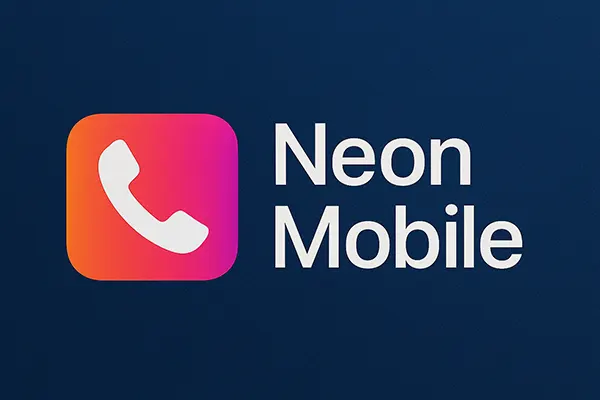
Neon Mobile App: Paid Call Recording – Risks and Reality
In recent years, data-driven applications have gained significant attention, but the Neon Mobile app managed to spark particular debate. This service promised users monetary rewards in exchange for allowing their phone calls to be recorded for artificial intelligence training. However, the app was temporarily removed following a major data leak. Such an incident raised crucial questions regarding the sustainability of its business model, legal implications, ethical issues, and whether services like these should be trusted at all in 2025.
The Business Model Behind Neon Mobile
The core idea of Neon Mobile was to monetise voice data by compensating users for granting access to their private conversations. The collected data was used to train speech recognition systems and AI-driven tools, creating a mutually beneficial exchange on paper. Users were given financial incentives while companies gained access to authentic, diverse datasets.
In practice, however, this model comes with significant risks. Recording personal calls inevitably involves capturing sensitive information, often including third parties who have not consented to such recordings. This makes the legality of the business model questionable in many jurisdictions, especially those with strict data protection laws like the EU’s GDPR or the UK’s Data Protection Act.
Furthermore, the reliance on user participation for sensitive data creates a fragile trust-based ecosystem. Once confidence is broken, as happened with the Neon Mobile breach, both user adoption and investor interest quickly diminish.
Challenges of Sustainability
While financially attractive, the Neon Mobile approach struggles to remain sustainable. Compensation for users requires ongoing funding, which in turn depends on demand from tech firms for recorded conversations. If the demand decreases, payouts shrink, reducing user motivation.
Additionally, privacy regulations vary greatly worldwide, making global scaling extremely complex. What might be legal in one market could result in severe penalties in another. The complexity of navigating these rules often outweighs the potential profits.
Another factor is the competition from synthetic datasets. Many companies now invest in generating artificial training data, reducing reliance on risky real-world recordings. This trend could make Neon Mobile’s business model obsolete even without further controversies.
Legal and Ethical Dimensions
One of the most pressing issues with Neon Mobile is the legality of recording conversations for profit. Most jurisdictions require explicit consent from all participants in a call before any recording can take place. While users of Neon Mobile may have consented, the third parties they spoke to often did not, raising major legal red flags.
The ethical implications are equally concerning. Selling access to intimate conversations blurs the line between voluntary data sharing and exploitation. Users in financially vulnerable situations may be more inclined to trade privacy for short-term gains, creating a potential for exploitation.
Furthermore, once recordings are leaked, the damage is irreversible. Unlike passwords, conversations cannot be “reset” or replaced. This raises questions about the responsibilities of companies engaging in such models and the safeguards they must enforce.
Impact of the Data Breach
The Neon Mobile breach highlighted exactly how fragile the security of such a system can be. According to reports, thousands of recorded calls were exposed, some containing sensitive financial, medical, or personal details. This incident not only compromised users’ privacy but also affected unsuspecting third parties who never agreed to participate.
For regulators, this incident became a wake-up call. Investigations into Neon Mobile focused on whether the app had violated existing privacy laws and if stronger regulatory frameworks were required. It also reignited the debate around monetising personal data, particularly when third-party privacy is at stake.
Public trust was deeply damaged. Even if Neon Mobile were to relaunch with stronger security, the stain of its earlier breach would make adoption difficult. In industries where user trust is paramount, regaining credibility after such an incident is almost impossible.

Should Users Trust Similar Services?
In 2025, questions about data security and privacy have become central to the digital economy. Users are increasingly aware that “free” or financially rewarding apps often come at the cost of personal data. Services that monetise call recordings face greater scrutiny than ever before, and most experts now warn against using them.
While some argue that compensation provides transparency compared to apps that collect data secretly, the risks often outweigh the benefits. Once sensitive conversations are shared, users lose all control over how that information is stored, processed, or sold.
Instead, experts recommend choosing services that follow strong encryption standards, are transparent about data use, and comply fully with data protection regulations. While these may not offer monetary rewards, they offer something more valuable in the long term: safety and privacy.
Expert Opinion on Future Prospects
From an expert perspective, services like Neon Mobile are unlikely to thrive in the long run. Legal and ethical challenges create too many barriers, and users are less willing to trade privacy for short-term financial incentives. Regulatory bodies are also expected to increase enforcement against companies using questionable data practices.
Artificial intelligence development will continue, but the reliance on recorded personal conversations is diminishing. Instead, synthetic and anonymised datasets are gaining traction, reducing the need for apps like Neon Mobile. These approaches also offer lower legal risks and higher scalability.
Ultimately, the Neon Mobile case serves as a cautionary tale. It shows how quickly a seemingly innovative model can collapse when it disregards privacy fundamentals. For users, the lesson is clear: financial rewards rarely justify the permanent risks to personal data.


